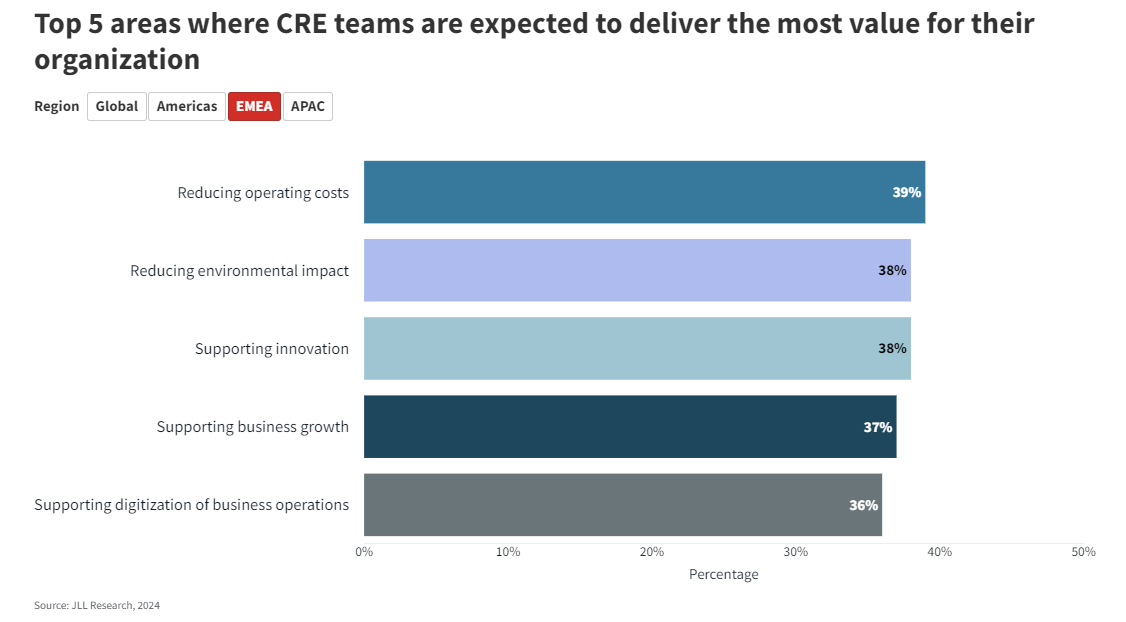However, most organizations will also retain a sharp focus on workplace efficiency, making smarter and more responsible use of their real estate portfolio. According to Future of Work 2024, της JLL, more than 60% of respondents expect to see increased workplace utilization over the next five years.
According to survey respondents, the biggest constraint on operations is the difficulty to think long-term given the fast-changing and dynamic environment. This manifests nowhere more than the CRE landscape, where professionals have had to constantly adapt to major changes to the ways people work in the last few years. This cautious approach to uncertainty has resulted in complexities for CRE teams, not least of which is the need to invest for the future by transforming workplaces, while maintaining an acute focus on efficiency and costs.

This increasingly complex and rapidly evolving business environment requires an agile real estate operation - one that quickly tests, learns and adapts, with companies becoming a living organization that will continue to grow and evolve, rather than a static one environment.
As a result, flexibility and resilience are now seen as the second most important asset for corporate real estate, which aspires to create as well as maintain value.
And in this, solutions should be sought that will respond to the perception that business real estate is a cost center and not a value creation parameter, as stated by 41% of respondents to the survey.
Upgrading skills through strategic partnerships
The sheer number of different skills required to be able to meet all these challenges has turned most businesses to outsourcing.
Across a range of activities, from workplace strategy to hiring management, 40% of decision makers report that strategic partnerships can be used to complement internal skills and capabilities in response to sudden changes or where needed for specific projects.
















